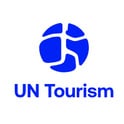UN Tourism and easyJet holidays advance partnership towards ESG Framework for Tourism Businesses
UN Tourism and easyJet holidays have stepped up their collaboration as they develop a groundbreaking ESG (Environmental, Social, and Governance) Framework for businesses across the sector.
According to the latest UN Tourism data, international tourist arrivals have returned to 96% of pre-pandemic levels, with full recovery likely by the end of the year. With further growth anticipated, there is a pressing need to look beyond economic impacts of the sector and measure metrics relating to environmental dependencies, community impact, employee wellbeing, and much more. However, the sector currently lacks a unified Environmental, Social, and Governance (ESG) reporting framework, making it difficult for tourism companies and stakeholders to measure, compare, and meaningfully communicate their sustainability efforts and impacts.
Scaling up support for ESG
To address this, UN Tourism, in collaboration with the University of Oxford (Oxford SDG Impact Lab), has been developing the first harmonized ESG Framework for Tourism Businesses. easyJet holidays has been part of the project from its inception and is now scaling up its support to accelerate the next critical phases. Through this strategic partnership, easyJet holidays will play a key role in supporting the research and development of the ESG Framework, including pilot testing with companies worldwide, stakeholder engagement, and organization of awareness initiatives.
UN Tourism is proud to be working with easyJet holidays to address the vital need for a clear, consistent ESG Framework for our sector. As we rollout this out, such public-private collaboration play a key role in scaling up our efforts to better understand and manage tourism's impacts at every level. UN Tourism Secretary-General Zurab Pololikashvili
We're extremely proud to continue our partnership with UN Tourism, as a founding partner in developing the first consistent ESG framework for the tourism industry. We strongly believe in the power of collaboration, between the public and private sector, as an important and effective driver of achieving our Sustainable Development Goals. Garry Wilson, easyJet holidays' Chief Executive Officer
Collaborative effort and common statistics framework
The development of the ESG Framework is being guided by extensive research, with input from nearly 600 tourism companies worldwide to date. This comprehensive approach ensures that the Framework addresses the real-world challenges and opportunities facing the sector.
The ESG Framework aligns closely with UN Tourism's "Statistical Framework for Measuring the Sustainability of Tourism" (SF-MST), endorsed by the United Nations Statistical Commission with unanimous support from all 193 UN Member States. MST establishes fundamental concepts, definitions, data structures, and indicators for assessing tourism sustainability from the international to the local levels. The ESG Framework extends these principles to businesses, fostering greater alignment between public and private sector data.
Related Links
About UN Tourism
The World Tourism Organization (UN Tourism) is the United Nations agency responsible for the promotion of responsible, sustainable and universally accessible tourism.
As the leading international organization in the field of tourism, UN Tourism promotes tourism as a driver of economic growth, inclusive development and environmental sustainability and offers leadership and support to the sector in advancing knowledge and tourism policies worldwide.
Our Priorities
Mainstreaming tourism in the global agenda: Advocating the value of tourism as a driver of socio-economic growth and development, its inclusion as a priority in national and international policies and the need to create a level playing field for the sector to develop and prosper.
Promoting sustainable tourism development: Supporting sustainable tourism policies and practices: policies which make optimal use of environmental resources, respect the socio-cultural authenticity of host communities and provide socio-economic benefits for all.
Fostering knowledge, education and capacity building: Supporting countries to assess and address their needs in education and training, as well as providing networks for knowledge creation and exchange.
Improving tourism competitiveness: Improving UN Tourism Members' competitiveness through knowledge creation and exchange, human resources development and the promotion of excellence in areas such as policy planning, statistics and market trends, sustainable tourism development, marketing and promotion, product development and risk and crisis management.
Advancing tourism's contribution to poverty reduction and development: Maximizing the contribution of tourism to poverty reduction and achieving the SDGs by making tourism work as a tool for development and promoting the inclusion of tourism in the development agenda.
Building partnerships: Engaging with the private sector, regional and local tourism organizations, academia and research institutions, civil society and the UN system to build a more sustainable, responsible and competitive tourism sector.
Our Structure
Members: An intergovernmental organization, UN Tourism has 160 Member States, 6 Associate Members, 2 Observers and over 500 Affiliate Members.
Organs: The General Assembly is the supreme organ of the Organization. The Executive Council take all measures, in consultation with the Secretary-General, for the implementation of the decisions and recommendations of the General Assembly and reports to the Assembly.
Secretariat: UN Tourism headquarters are based in Madrid, Spain. The Secretariat is led by the Secretary-General and organized into departments covering issues such as sustainability, education, tourism trends and marketing, sustainable development, statistics and the Tourism Satellite Account (TSA), destination management, ethics and risk and crisis management. The Technical Cooperation and Silk Road Department carries out development projects in over 100 countries worldwide, while the Regional Departments for Africa, the Americas, Asia and the Pacific, Europe and the Middle East serve as the link between UN Tourism and its 160 Member States. The Affiliate Members Department represents UN Tourism's 500 plus Affiliate members.
UN Tourism Communications Department
+34 91 567 8100
UN Tourism
